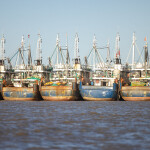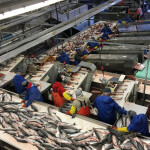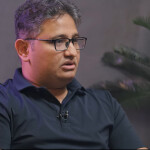Fish discards and an end to top-down management were high on the agenda for Scottish fishermen when they met with European Union Fisheries Commissioner Maria Damanaki on her first official visit to Scotland.
Along with fishing ministers from the North Sea region, the commissioner attended a round table discussion in Aberdeen on Friday, part of the North Sea conference.
In a damning criticism of EU fish policy, Scotland’s Fisheries Secretary Richard Lochhead told conference attendees that "a system, such as that imposed by the Common Fisheries Policy [CFP], where fish are discarded — dead — to no one's benefit must cease."
He also voiced a widely-held opinion in Europe's fishing community that reform to the CFP must see decision making move away from Brussels and the European Commission and toward a more regionalized and flexible system that places management alongside local expertise for the best results.
And Scotland is not alone in its criticisms of the CFP. At the meeting on Friday, fishing ministers from the U.K., Norway and Denmark presented the joint “Ardoe” declaration to commissioner Damanaki. They state that EU member states should stop discarding dead fish back into the sea and take all possible steps to account for and manage catches by their fishing fleets.
Effective fisheries management in the North Sea, said the ministers, should be results based, with states determining how to achieve shared objectives and coordinating with each other. Further, they pressed the need for greater regionalization of fisheries management to replace the current “one-size fits all” approach.
Fishing is big business for Scotland, the host country for the conference. Scotland’s 5,000 fishermen and 2,375 fishing vessels land nearly 70 percent of the U.K.’s total seafood catch — more than 444,000 metric tons annually— and worth more than GBP 370 million.
The country is keen to build on its seafood reputation, as outlined recently by Scottish First Minister Alex Salmond.
But dwindling stocks and a fisheries policy crucially in need of reform are weighing heavily on the industry, putting into sharp relief its future.
For example, by mapping marine resources for a year the New Economics Foundation (NEF) estimates the EU's degree of self-sufficiency in fish consumption. The think-tank’s report finds the day when Europe nominally consumes all of its own fish, before starting to live off the rest of the world.
This year the think tank said Europe reached that day on 9 July, a month earlier than when the group etched the analysis in 2000. But, say the report's authors, the EU has highly productive waters that have the potential to sustain a long-term and stable supply of fish, jobs and related social and economic benefits, but only if its fish resources are managed responsibly.
All Supply & Trade stories >




